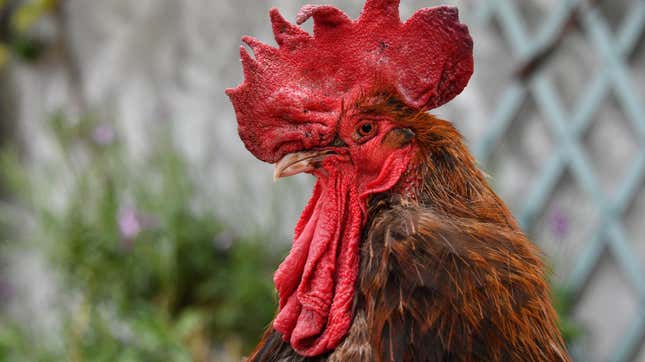
Only the French would pass a law that is so poetically existential. While conservation efforts in most countries tend to focus on saving endangered animals or plant life, France is going further in an effort to preserve the sensory experiences of its rural areas.
On Thursday, France’s Senate approved a bill designed to protect that certain smell of cow poop or sound of a rooster crow that citizens in its various regions consider to be a defining characteristic of their environment. In a press release, Joël Giraud, secretary of state to the Minister of Territorial Cohesion and Relations with Local Authorities, said, “this bill is the outcome of a parliamentary initiative whose objective is to allow recognition of the sounds and smells characteristic of rurality in order to better prevent neighborhood conflicts.”
In the bill itself, lawmakers identified a number of disputes that have arisen in recent years, including the accumulation of horse dung along the greenways in Orschwihr, the song of cicadas in Beausset, and quacking ducks in Soustons. There’s no single cause for these stories, but an influx of tourism or an uptick of city-dwellers moving to the countryside is a common theme.
While the legislation acknowledges that France has a history of these kinds of disputes that goes back decades, at least, the bill says that ignorance of standard agricultural practices and sudden “confinement” has led to an increase of cases that have pulled local mayors and administrators into confusing situations. For instance, some citizens have been annoyed by the early morning sounds of farm equipment or repulsed by the smell of a poultry farm. As for the issue of confinement, lawmakers indicated that more people have been spending prolonged periods of time in their second homes, presumably as a consequence of the covid-19 pandemic sending people into quarantine.
The situation gained widespread attention when the case of Maurice the rooster made international headlines. Maurice and his owner were sued by their neighbors who felt that the rooster was too noisy. The neighbors were a retired couple who had moved to the island of Oléron from the French city of Limoges. The rooster became a populist hero, beat the nosey neighbors in court, and his owner was awarded $1,100 in damages for his trouble. Following the 2019 victory, Maurice’s lawyer, Julien Papineau, told the New York Times that “this rooster was not being unbearable... He was just being himself.” Since then, Maurice has passed away, but in his tweet announcing the legislation’s passage in Parliament, Giraud called it a posthumous victory for France’s “symbol of rurality.”
In that spirit, it’ll be up to the localities to decide what sounds and smells are an essential part of the fabric of their environment. The bill is light on criteria for making those decisions and only takes the time to address the possibility that church bells could become a point of controversy or legal conflict. For the most part, the bill is setting up an administrative initiative for delegating the responsibility of deciding the framework for defining and analyzing a region’s “sensory heritage.”
It’ll be interesting to see which characteristics the various regions choose as their own in the future, and the bill is likely coming just at the right time. Post-pandemic life is expected to bring greater acceptance of working from home and city-dwellers are likely to put down stronger roots in the country as time goes on.